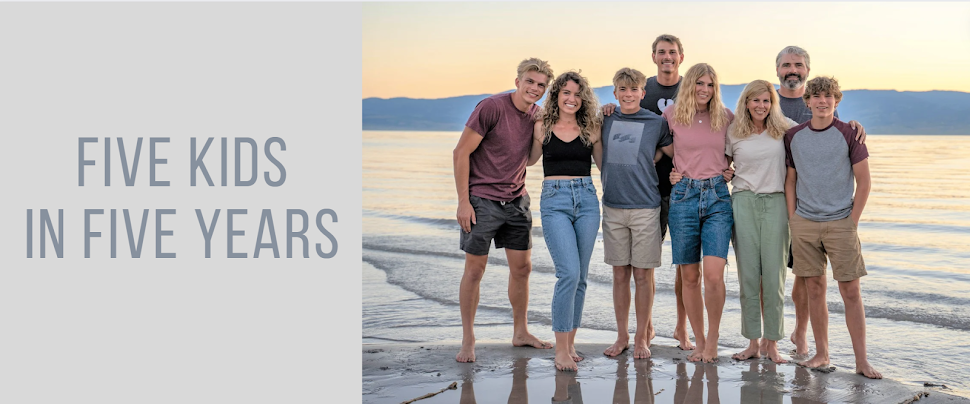Podcast
The Gift of Failure - important and fascinating information on why we need to let our kids struggle and fail and how we can mess our kids up by helping them too much and/or expecting too much of our children. I think I'll invite the author/interviewee to be on Power of Moms Radio. I've got more questions for her!
Ted Talk
Important ideas about how to make great conversation - stuff that's especially important for moms like me who are trying to engage their kids in meaningful conversation and who are too-often distracted!
Celeste Headlee:
10 Ways to Have a Better ConversationHere are my notes from her talk. I totally used this yesterday afternoon in my interactions with my kids and felt like a pretty darn good mom.
1. Don't multitask - don't be half in conversations. Listen fully.
2. Don't pontificate (that's what blogs are for). Everyone you ever meet knows something that you don't know. Find out what that is. Listening isn't just waiting until you get a chance to talk.
3. Ask open-ended questions, not yes or no questions. Start your questions with who, what, when, where and why.
4. Go with the flow. Thoughts/questions will come into your mind and then go out of your mind if you're really following what people are saying. Don't be so attached to the questions and thoughts you want to share that you don't end up asking questions or making comments that really connect to what the person is currently saying.
5. If you don't know, admit it. Say that you don't know.
6. Don't equate your experience to theirs. All experiences are individual. You can never understand fully what someone else is going through. Conversations are not a promotional opportunity.
7. Try not to repeat yourself. It's so easy to keep saying the same thing over and over again in different ways.
8. Stay out of the weeds. The details don't really matter - the exact date, the exact place - just leave them out.
9. Listen. This is the most important skill you can develop. If your mouth is open, you are not learning. The average person talks at 200 words per minute but our brains can absorb 500 words per minute as we absorb and fill in as we're really paying attention.
10. Be brief.
Keep your mind open and your mouth shut and be prepared to be amazed by the wonderful things people will share with you.

i would love to hear a power of moms podcast with the gift of failure author!
ReplyDeleteThanks for telling me yesterday to look at these links! I will definitely listen to them in the next few days. LOVED our time together yesterday. When I left, I thought of so many things I had wanted to talk with you about too. Maybe next time we'll have to type up an agenda! Let's not let too many months pass between lunch dates this next time. xx
ReplyDeleteExcellent and useful resources. Thank-you.
ReplyDeleteI'm excited for these!! Thank you for sharing. Here's a few I loved this week:
ReplyDeletehttps://www.lds.org/media-library/video/pioneers-in-every-land?lang=eng and
The Monica Lewinsky Ted Talk
Thanks Saren! Loved the TED talk.
ReplyDeleteThis is a random comment, not really related to this post, but I've been reading your posts on your holiday adventure camp (We are working on ways to encourage our oldest (who is only 6) to be responsible for her learning and I knew you'd have some great starting points for us. I am Australian and I don't know if it's just the communities I've lived and worked in (I'm a teacher currently on leave, but working one day a week at my daughter's school), but here it seems that once children start school parents completely drop all responsibility for their children's education. There is this kind of expectation that they no longer have to do any of the educating of their children, because the school should be doing it. I do not feel this way and I feel that we need to everything we can to teach our children how to learn and to encourage them to want to learn, which is why we want to show her how to be responsible for her learning herself. She really thrives on routine and goals and responsibility, so it is easy to get her hooked and motivated if we make some kind of chart for her to tick things off! Anyway, my point was that I love the way you and your family take responsibility for educating your children outside of school, and that I often feel very isolated with my thoughts on this topic among my friends (I can't include family in this statement, because no one else has kids yet), so I really enjoy reading your posts on things like summer goals, etc. Thank you.
ReplyDelete